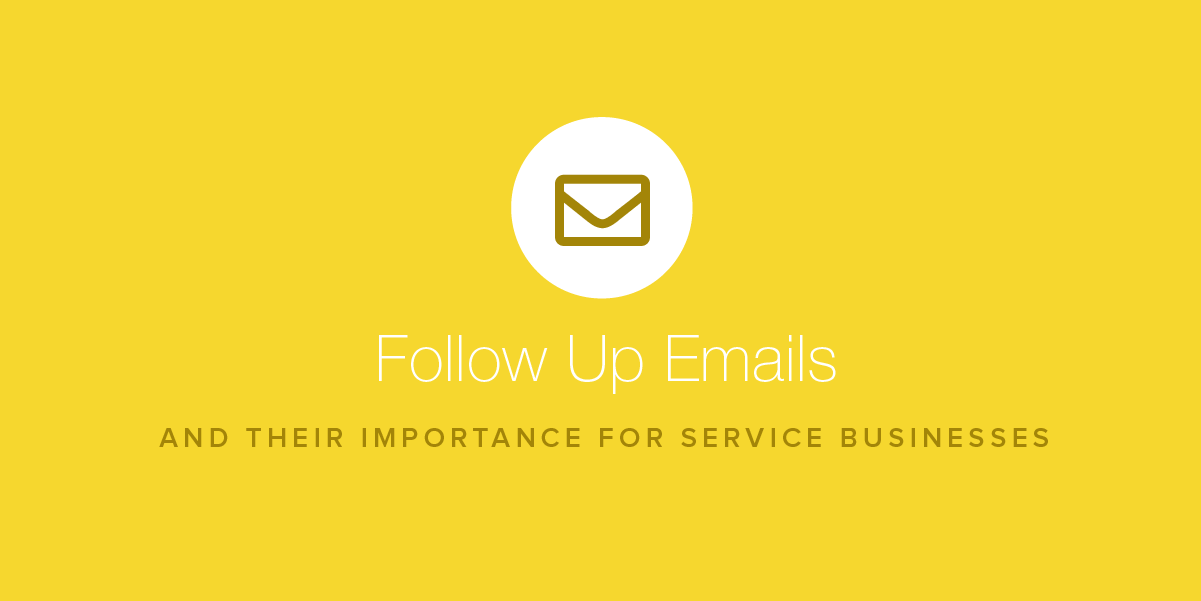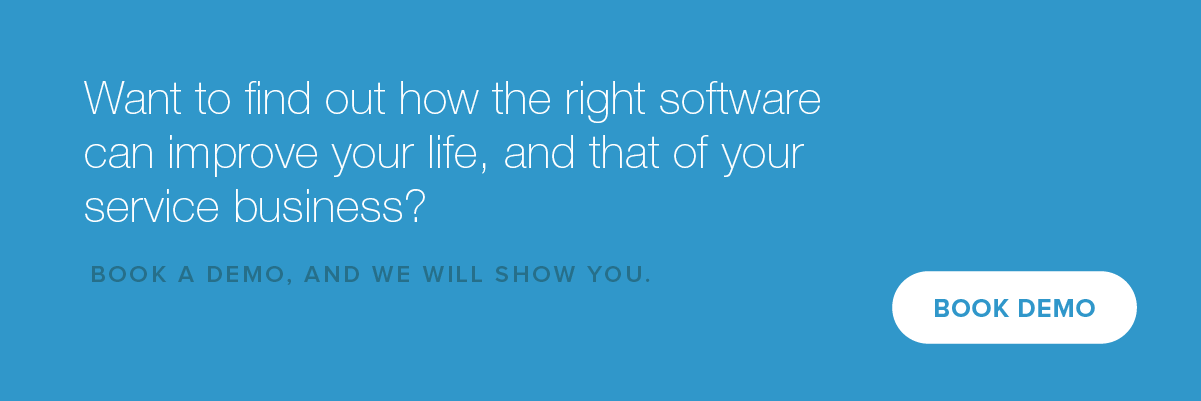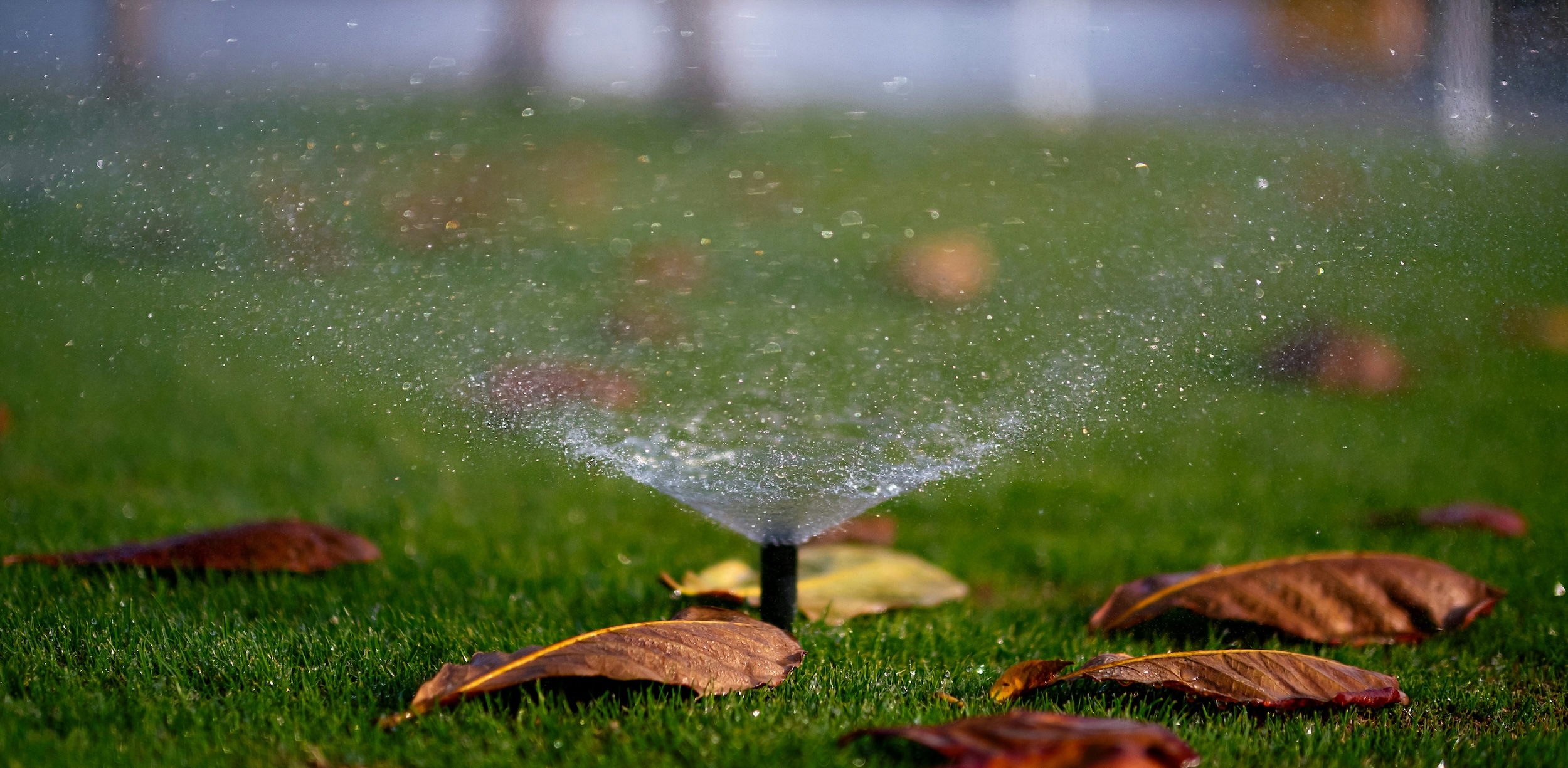The Importance of a Good Follow Up Email for Service Businesses
- September 8, 2018
- By: Vonigo
For a service business, one of the most important things about the way you operate is the impression you leave your customers with. Not only the quality of your work but the reputation of your customer service. A good follow up email can make a big difference in customer service and encourage repeat bookings.
After the Booking
Much of this article will cover the importance of a follow up email that you send after you’ve completed a service. Just as crucial though is to send a follow up to confirm the details of a booking.
Your booking confirmation email should contain all of the information that is relevant to the booking. The time that the service is scheduled for, the address, and the details of the service. List the date and time in full, and most email inboxes will turn it into a link that customers can use to add the booking to their own calendars.
After the Job is Complete
The follow up email that you send after your team has completed the service is one of the most powerful points of contact you will have the customer. First and foremost, it serves as a notice that the work is complete. But it can do much more than that. As we’ll explain below, it can lead to all kinds of positive outcomes.
Too many companies overlook this opportunity. By making a quality follow up email part of your post-job process, you gain a significant advantage over your competition.
Encourage Feedback and Reviews
The period immediately following the service is the ideal time to ask customers for feedback. It’s best if you first invite the customer to provide feedback directly to you. Not all customers will offer detailed feedback, but each one that does presents an opportunity.
When a customer’s feedback is critical of your service, it can help you identify areas of your business that your team has to work on. Remember that for every customer that has a complaint, there could be many who chose to remain silent, even though they share similar concerns. Reach out to them with your assurance that you will address any issues that caused them concern.
If a customer offers glowing feedback and sings your praises, you can ask them for a review. It can be on Yelp, Google, or even in an email form that you can use as a testimonial on your website. Encourage the most positive of customers to make their feedback public, and it can help future customers decide to do business with you.
Some Tips on How to Handle Feedback
Want to learn how to deal with negative feedback or reviews? Read our articles on how to deal with a negative review, or how to understand customer criticism.
If you’ve collected a lot of good reviews (for example, on Google My Business), display them on your website and in your search engine results. Read our article about encouraging and displaying reviews, and how it can positively affect your SEO.
If you’d like to learn more about how to become a top-rated Yelp business, we’ve published a complete guide to Yelp for service businesses.
Ask for Referrals
Your follow up email can also encourage customers to tell their friends or neighbors about you. For example, let’s say you provide a cleaning or junk removal service. Your customers might have neighbors or family members who could use your services as well.
If you can, you may even want to incentivize these referrals. You can offer a discount to the referrer for their future bookings, or some other incentive that is relevant to your business, and of value to them.
Encourage Repeat Bookings
For services that have the potential to encourage repeat business, a follow up email should encourage customers to re-book with you. Even if they don’t book right away, having a link to your online booking in the email could prove useful even months down the road when they search their email inbox for your info.
As with referrals, there’s an opportunity to incentivize customers to take action.
Promote an Offer
Whether it’s a limited time offer or an incentive for a customer to book with you again, your follow up email is a great place to promote any offers you have.
Ask for a Follow or a Like
If you have active social media accounts and you would like more of your customers following you, provide a link to your accounts in the email. This is a good idea if you’ve made social media a part of your marketing strategy.
Your social media messages could be the reminder to a customer to book with you again or to refer a friend.
The Essential Elements of a Good Follow Up Email
A good follow up email should:
- Verify that the job is complete
- Ask for feedback (and/or reviews)
- Ask for referrals
- Offer a link to book with you again
- Promote any current offers
- Have links to your social media accounts (if applicable
A Follow Up Email Example
Here is an example of a follow up email that does all of the above, without running too long.
Hi [NAME],
This is a note to confirm that [SERVICE] at [CUSTOMER ADDRESS] is now complete. We would love to hear what you think, so please don’t hesitate to reply to this email with your feedback.
If you are happy with the service, don’t hesitate to refer a friend or neighbor. For every friend that you refer, we will you offer you [INCENTIVE] for your next service.
To book with us again, visit [LINK] and we will offer you [INCENTIVE] for being a loyal customer with us.
We appreciate your business. Thank you so much for choosing us!
Sincerely,
[COMPANY OR OWNER NAME]
Follow us on social media:
[SOCIAL ICONS WITH LINKS]
Automatic Follow Up Emails from Your Service Business Software
A follow up email should not be a lot of work. In fact, it should be generated automatically by your service business software. Just as in the case of an email that confirms a booking, the follow up should be triggered when your crew completes and “checks out” of a job.
Beyond the initial email that is generated by your software, you may wish to have a series of emails that attempt to re-engage the customer the future. In this case, you should learn more about email automation, and consider using an email marketing tool to help manage it.
Not Just One: Have an Email Marketing Strategy
It’s a good idea to include everything discussed above in your follow up email. But you need not limit yourself to one. If you provide a service that a customer might use on a semi-regular basis (like carpet cleaning, window washing, or junk removal), you can schedule a future follow up email as a reminder to book again.
Use a service like MailChimp, Constant Contact or MailMunch to schedule these emails into the future at an interval that makes sense. 6 months? A year? Test your methods for effectiveness. Any amount of response is better than you would get if you don’t bother to ask.
Since they are your customers and have had transactions with you, everything discussed here is completely CAN-SPAM compliant. Using services like the ones listed above ensures that your emails will contain things like unsubscribe links, that you have implied consent to email them, and that your business and service will be well known to the customer.
Email Marketing Tips for Service Businesses
If you’d like to learn more about email marketing, we have a number of articles on the topic. Read our two-part guide to email marketing for service companies. Part one covers the basics, and part two goes into more detail about email automation.
We’ve also published an infographic that covers the do’s and don’ts of advanced email marketing. We also have an article that talks about how to design a good email newsletter.
Learn More About Service Business Management Software
Want to learn about how to use follow up emails with service business software? The right software can handle online booking, scheduling, invoice, payments, and accurately track your stats. To learn more, book a free, private demo of Vonigo.




